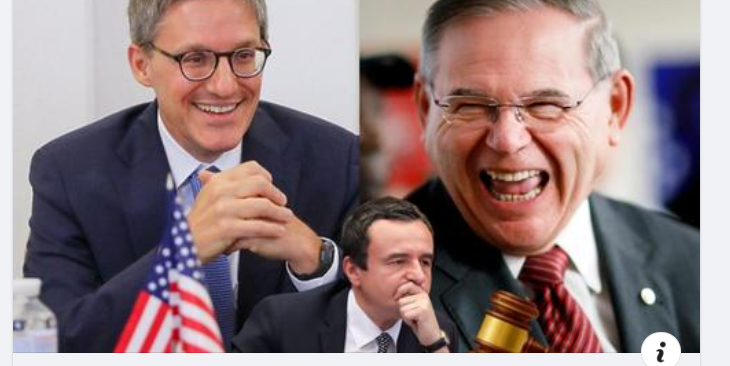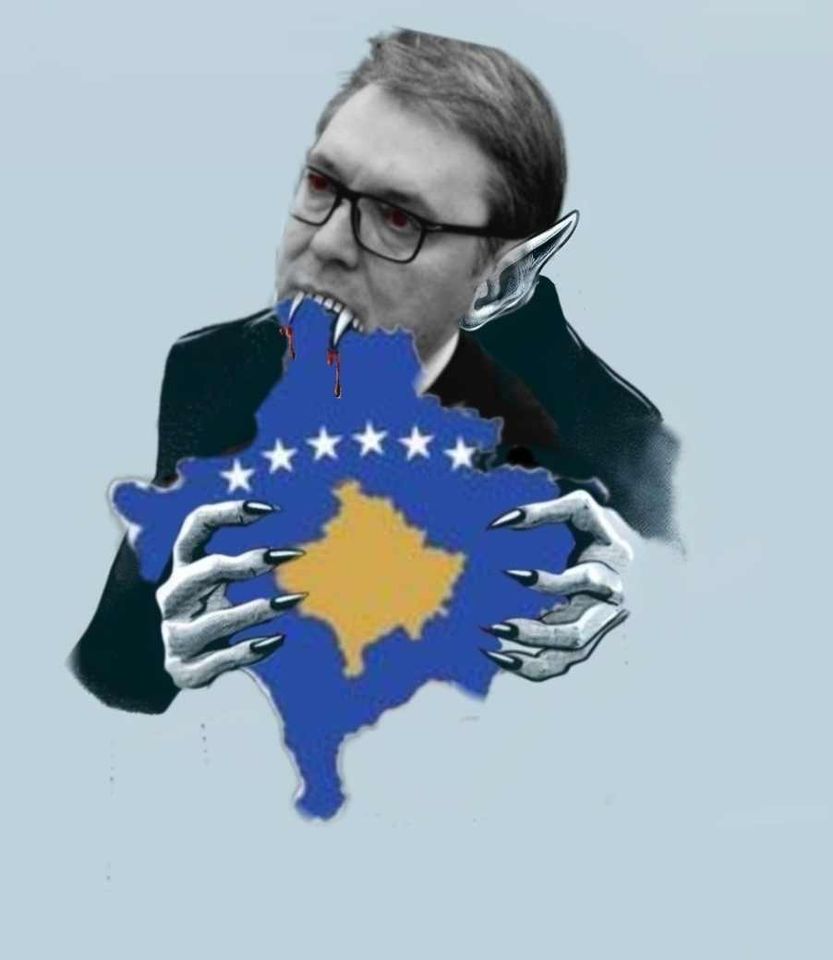In Serbia’s elections, Pres. Vucic’s legacy intertwines with regional stability. Amidst economic challenges & ethnic tensions, the vote stands as a crucial referendum on Serbia’s future in the Balkans
BELGRADE, Serbia — Just 18 months after a decisive re-election, Serbian President Aleksandar Vucic prepares for another political showdown in the upcoming parliamentary and local elections set for December 17. This development comes amid a backdrop of mounting protests and economic challenges, underscoring a crucial juncture in Serbia’s political trajectory.
While President Vucic is not a direct candidate in these elections, his presence is palpable throughout Serbia. His image adorns billboards and skyscrapers, while his political narratives dominate social media and 24-hour news cycles. This omnipresence, according to the Belgrade-based Centre for Research, Transparency and Accountability, blurs the lines between presidential and local politics, positioning these elections as a referendum on Vucic’s tenure.
Vucic, 53, has molded his image as a tireless leader, committed to investment and job creation. However, his tenure is not without controversy. As the former propaganda minister of the Milosevic regime, Vucic’s past is intertwined with a painful chapter in Balkan history — a period marked by conflict and ethnic strife, leaving nearly a quarter-million dead. His administration’s policies, particularly towards Kosovo and the Presevo Valley, have reignited concerns about ethnic tensions and regional stability.
In Serbia, Vucic’s approach to governance and foreign policy, including a “foreign policy consultancy” treaty with Moscow, has stirred diplomatic incidents and religious and ethnic tensions. Domestically, his government faces the dual challenges of soaring inflation and public discontent, prompting a pre-election spending spree aimed at appeasing a restive electorate.
The situation in Kosovo, under Prime Minister Albin Kurti, presents a stark contrast. Kurti’s administration has taken a firm stance against Serbian influence, particularly in addressing organised crime networks in Kosovo’s northern bank and asserting control over its territorial integrity. The tensions between Serbia and Kosovo, exacerbated by longstanding ethnic and political disputes, continue to shape the geopolitical landscape of the Western Balkans.
The Presevo Valley, known to Kosovars as “Southern Kosovo,” remains a flashpoint in Serbian-Albanian relations. The Helsinki Committee for Human Rights in Serbia has described the Serbian state’s administrative measures in the area, particularly the nullification of residential addresses for ethnic Albanians, as a form of ethnic cleansing. These actions have led to significant human rights concerns, including the non-recognition of school diplomas and resultant brain drain.
In the diverse mosaic that is the Balkans, Kosovo and Serbia present a complex picture of ethnic composition and representation. In Kosovo, Albanians constitute a significant majority, approximately 93%, with Serbs making up about 4% and other minorities, including Bosniaks, Roma, Ashkali, Egyptians, Turks, and Gorani, accounting for the remaining 7%. This demographic reality contrasts sharply with the situation in neighboring Serbia, where ethnic minorities represent around 20% of the population, nearly three times the proportion in Kosovo.
The disparity in minority representation between Kosovo and Serbia raises critical questions about equitable treatment and rights for all ethnic groups. The discussion of ethnic representation in Serbia is particularly poignant, given the country’s history and current socio-political dynamics.
One stark illustration of this disparity is in the representation of Albanians in Serbian governmental institutions and public services. A closer look at various sectors reveals a concerning trend of underrepresentation:
In the Republican inspections across three municipalities, only one Albanian is employed in Bujanoc, with no Albanians in other key inspectorate roles such as tourism, veterinary, health, environmental, and educational inspections.
The High Court in Vranje, Presevo, Medvegja, and Bujanoc has no Albanian representatives.
The Basic Court in Vranje employs no Albanians, with only four out of thirteen employees being Albanian in Bujanoc, and none in Medvegja and Presevo.
In the Administrative Court and the Basic Court for Contraventions in Presevo, the Albanian presence is minimal.
The situation is similar in the prosecutor’s offices and customs, where Albanian representation is virtually non-existent.
Only one notary in Presevo and a single employee in the cadastral office in Presevo, with none in Bujanoc and Medvegja.
The firefighting services and the Ombudsman’s office also reflect this lack of diversity.
In law enforcement, Albanians are significantly underrepresented in leadership positions across several stations.
These figures and facts point to a troubling pattern of what some critics call “administrative and institutional ethnic cleansing.” The systematic exclusion of Albanians from public services and governmental institutions in Serbia not only undermines the principles of equality and fairness but also perpetuates ethnic divisions and tensions.
The call for greater attention and action on this issue is not just a matter of fairness but also of stability in a region still healing from the scars of past conflicts. The need for reciprocity in minority rights and representation between Kosovo and Serbia is more than a political imperative; it is a necessary step towards fostering a more inclusive and equitable Balkan region.
In this context, the December 17 elections in Serbia are more than a political contest; they are a litmus test for the region’s future. The Albanian coalition in Serbia, actively supported by Kosovo’s Prime Minister Kurti, symbolises the struggle for political pluralism and national unity. This coalition, comprising five Albanian parties, aims to challenge the systemic oppression under Serbian rule and advocate for the rights and freedoms of Albanians in the Presevo Valley.
As the election day draws near, the international community watches closely. The outcome will not only determine the political landscape within Serbia but also signal the future direction of Serbian-Kosovar relations and the broader stability of the Western Balkans. The stakes are high, and the ramifications of this electoral contest will resonate far beyond Serbia’s borders.


Shënim:
Redaksia, diplomacia. dk nuk e merr përgjegjësinë për pikëpamjet e autorit në shkrimin e botuar!
Respekt!
